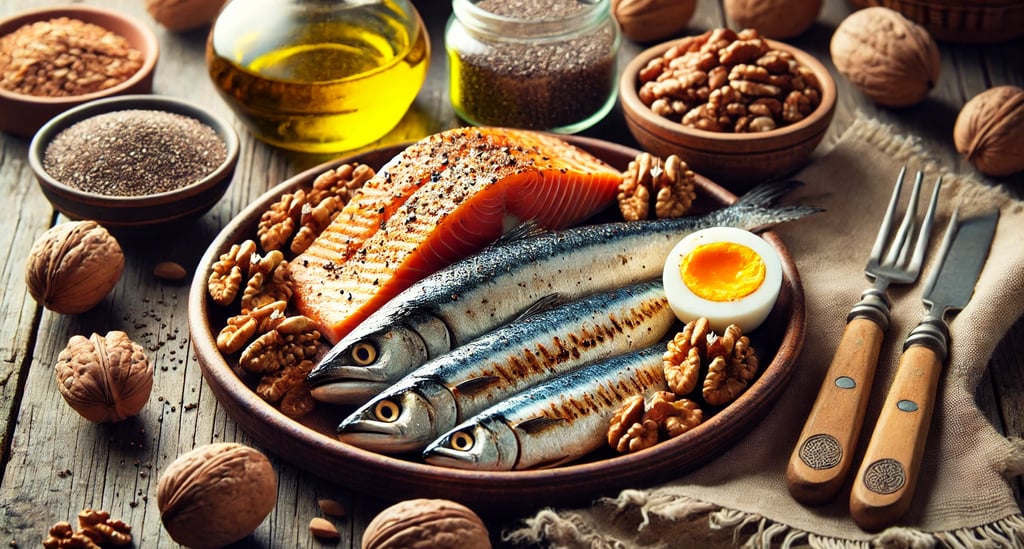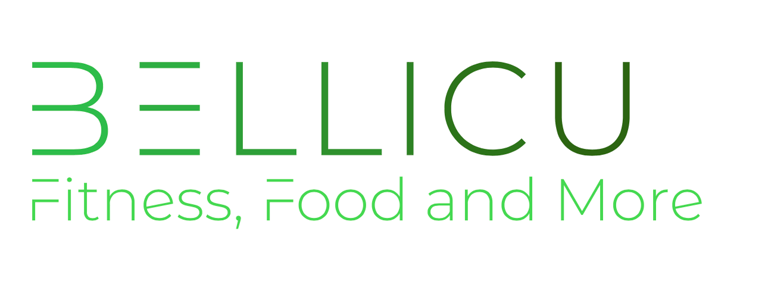Thinking about trying the keto diet but not sure where to start? You're not alone. The ketogenic diet has become one of the most popular low-carb approaches for weight loss, energy, and improved mental focus. In this beginner-friendly guide, we’ll break down what the keto diet is, how it works, what you can eat, and the science-backed benefits it offers. Whether you're here to lose fat, manage blood sugar, or simply feel better, this guide will help you decide if keto is right for you.
Keto Diet for Beginners
What It Is, How It Works, and What to Eat


What is a Keto Diet?
The ketogenic diet (or keto diet) is a low-carb, high-fat eating plan designed to shift your body’s metabolism into a state called ketosis. In ketosis, your body burns fat instead of carbohydrates for energy. The diet typically consists of 70-75% fat, 20-25% protein, and 5-10% carbohydrates.
Originally developed in the 1920s as a treatment for epilepsy, the keto diet has gained popularity for its weight loss benefits, ability to stabilize blood sugar levels, and potential cognitive benefits. By drastically reducing carb intake and replacing it with fats, the body becomes more efficient at burning fat for energy.
How the Keto Diet Works (Ketosis Explained)
Under normal conditions, the body primarily relies on glucose (from carbohydrates) for energy. When carbs are restricted, the body has to find an alternative energy source.
After a few days of low-carb intake (typically below 50g per day), your body’s stored glucose (glycogen) is depleted, leading the liver to produce ketones from fat. These ketones become the primary fuel for your body and brain.
This metabolic shift not only helps with fat loss but also leads to more stable energy levels, as ketones provide a consistent fuel source, unlike glucose, which can cause spikes and crashes in blood sugar.
What to Eat on a Keto Diet (And What to Avoid)
To stay in ketosis, you need to consume high-fat, moderate-protein, and very low-carb foods. Below is a guide on what to eat and avoid.
Foods You Can Eat on Keto:
✅ Healthy Fats and Oils:
Olive oil, coconut oil, avocado oil, butter, ghee
Nuts and seeds (almonds, walnuts, macadamia, flaxseeds)
✅ Proteins (Moderate Amounts):
Meat (beef, pork, lamb, poultry)
Fatty fish (salmon, mackerel, tuna)
Eggs
✅ Low-Carb Vegetables:
Leafy greens (spinach, kale, lettuce)
Broccoli, cauliflower, zucchini, asparagus
Mushrooms, bell peppers, cucumber
✅ Full-Fat Dairy:
Cheese (cheddar, mozzarella, cream cheese)
Heavy cream, sour cream
Plain, full-fat Greek yogurt (in moderation)
✅ Beverages:
Water (plain or sparkling)
Black coffee, tea
Bone broth
Foods to Avoid on Keto:
🚫 Carbohydrates:
Bread, pasta, rice, oats, cereals, tortillas
Sugary foods (cakes, candy, ice cream, soda)
Starchy vegetables (potatoes, corn, peas, carrots)
🚫 Fruits (High in Sugar):
Bananas, apples, grapes, oranges, mangoes
Fruit juices and smoothies
🚫 Legumes and Beans:
Lentils, chickpeas, black beans, peanuts
🚫 Dairy with Added Sugar:
Milk, sweetened yogurts, flavored dairy products
🚫 Alcohol and Sugary Drinks:
Beer, sweet cocktails, soda, energy drinks
By sticking to healthy fats, moderate protein, and very few carbs, you can keep your body in ketosis and maximize the benefits of the keto diet.
Top Health Benefits of the Keto Diet
Many people turn to keto for weight loss, but the benefits extend beyond shedding pounds. Here’s what you can expect from a well-planned keto diet:
✅ Weight Loss and Fat Burning
Since keto forces your body to burn fat for energy, it can lead to rapid weight loss. The high-fat, moderate-protein intake also helps keep you full for longer, reducing cravings and unnecessary snacking.
✅ Stabilized Blood Sugar and Improved Insulin Sensitivity
By cutting out carbs, keto prevents spikes in blood sugar levels and can improve insulin sensitivity. Many people with type 2 diabetes or prediabetes report better blood sugar control on keto.
✅ Mental Clarity and Focus
Ketones are a more efficient fuel for the brain than glucose. Many keto dieters report improved concentration, memory, and mental clarity after adapting to ketosis.
✅ More Energy and Fewer Crashes
Without carbohydrate spikes and crashes, energy levels stay stable throughout the day. Many people find they have better endurance and fewer midday slumps.
✅ Appetite Control and Reduced Cravings
Since fats and proteins help keep you full, keto naturally reduces hunger and cravings, making it easier to eat fewer calories without feeling deprived.
✅ Potential Benefits for Certain Health Conditions
Epilepsy: The original use of keto, still effective for seizure management.
Heart Health: May improve cholesterol and triglyceride levels.
Polycystic Ovary Syndrome (PCOS): Some women with PCOS report improved symptoms on keto.
Neurodegenerative Diseases: Being studied for its potential effects on Alzheimer’s and Parkinson’s.
Is the Keto Diet Safe? What Experts Say
While the keto diet is safe for most healthy individuals, it’s not for everyone. Here are some things to consider:
❗ Short-Term Side Effects ("Keto Flu")
When transitioning to keto, some people experience flu-like symptoms known as the "keto flu", including:
Fatigue
Headache
Nausea
Muscle cramps
These symptoms are temporary and usually go away within a week. Staying hydrated and replenishing electrolytes(sodium, potassium, magnesium) can help.
❗ Potential Nutrient Deficiencies
Since keto eliminates many fruits and whole grains, it may lead to deficiencies in:
Fiber
Vitamins B and C
Magnesium and potassium
To avoid this, make sure to eat enough vegetables and consider supplements if necessary.
❗ Elevated Cholesterol for Some People
Keto can raise LDL (“bad”) cholesterol in some individuals, especially if they consume too much saturated fat. If you have a history of heart disease, consult a doctor before starting keto.
❗ Digestive Issues (Constipation or Diarrhea)
Low fiber intake can cause constipation, while a sudden increase in fats may lead to digestive discomfort. Eating enough low-carb vegetables and drinking plenty of water helps.
❗ Who Should Be Cautious or Avoid Keto?
People with kidney disease (high protein intake may stress kidneys)
Pregnant or breastfeeding women (may not provide enough nutrients)
Individuals with eating disorders (keto’s strictness may trigger unhealthy eating behaviors)
Diabetics on insulin or medications (must adjust meds under medical supervision)
If you have any pre-existing health conditions, always consult a healthcare provider before starting keto.
Final Thoughts: Is the Keto Diet Right for You?
The ketogenic diet can be an effective tool for weight loss, blood sugar control, and energy balance, but it requires strict carb restriction and commitment.
It may work well for those looking to:
✔ Lose weight efficiently
✔ Improve insulin sensitivity
✔ Increase mental clarity and energy levels
✔ Reduce cravings and appetite
However, it’s not ideal for everyone. If you choose to try keto, start slowly, plan meals carefully, and monitor how your body reacts..
Author’s Note: A Balanced Perspective on the Keto Diet
At Fitness, Food and More, we strive to explore all major diet trends with an open mind — including the popular ketogenic (keto) diet. However, it's important to be transparent about our perspective: we do not fully endorse the keto diet as a long-term, balanced way of eating for most individuals.
While the keto diet can be effective for short-term weight loss and certain medical conditions (such as drug-resistant epilepsy), it significantly restricts carbohydrates — including those from fruits, whole grains, and many vegetables. This limitation can lead to a reduced intake of essential micronutrients, dietary fiber, and plant-based antioxidants that support immunity, gut health, and long-term disease prevention.
According to the World Health Organization (WHO) and Dietary Guidelines for Americans, a healthy diet should include:
At least 400g of fruits and vegetables per day
A high intake of fiber (25–30g/day)
A balance of macronutrients, including complex carbohydrates
Restrictive diets like keto often fall short in meeting these recommendations, particularly in terms of fiber and phytonutrient diversity.
Emerging research also suggests that long-term adherence to very low-carb diets may negatively affect gut microbiota and increase the risk of cardiovascular issues in some populations (Seidelmann et al., Lancet Public Health, 2018).
We understand that some readers may find short-term benefits from keto, especially for fat loss or metabolic control. However, we encourage you to reflect critically on whether the exclusion of nutrient-dense carbohydrate sources aligns with your long-term health goals.
✨ Our philosophy emphasizes sustainable nutrition — rich in colorful plants, whole foods, and moderation over restriction.
